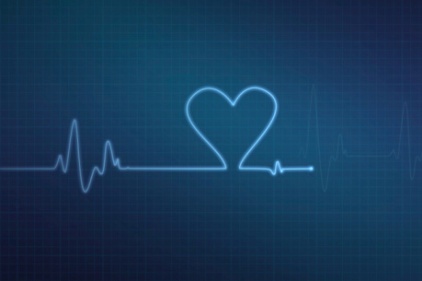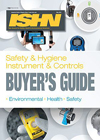Having high cholesterol puts you at risk of developingheart disease, the leading cause of death in the United States. Get information about risk factors, LDL and HDL, medications, and steps you can take to lower your cholesterol:
Risk Factors
Age
Because cholesterol tends to rise as people get older, everyone's risk for high cholesterol increases with age. Women's LDL ("bad" cholesterol) levels rise more quickly than do men's. Until around age 55, women tend to have lower LDL levels than men do.1 At any age, men tend to have lower HDL ("good" cholesterol) levels than women do.
Diabetes
Having diabetescan also make you more likely to develop high cholesterol.2 Diabetes affects the body's use of a hormone called insulin. This hormone tells the body to remove sugar from the blood. With diabetes, the body either doesn't make enough insulin, can't use its own insulin as well as it should, or both. This causes sugars to build up in the blood.
Diet
Certain foods raise your cholesterol levels. These foods tend to contain saturated fats, trans fatty acids (trans fats), dietary cholesterol, or triglycerides.
Weight
Being overweight can raise LDL, lower HDL, and raise total cholesterol levels.
Physical inactivity
Not getting enough exercise can make you gain weight, which can lead to increased cholesterol levels.
Heredity
High cholesterol can run in families. People who have an inherited genetic condition, called familial hypercholesterolemia, have very high LDL cholesterol levels beginning at a young age.
What You Can Do
Get a blood test
High cholesterol usually has no signs or symptoms. Only a doctor's check will reveal it.
Your doctor can do a simple blood test to check your cholesterol levels. The test is called a lipoprotein profile. It measures several kinds of cholesterol as well as triglycerides. Some doctors do a simpler blood test that just checks total and HDL cholesterol.
The National Cholesterol Education Program recommends that healthy adults get their cholesterol levels checked every five years.
recommends that healthy adults get their cholesterol levels checked every five years.
|
Desirable Cholesterol Levels |
|
|
Total cholesterol |
Less than 200 mg/dL |
|
LDL ("bad" cholesterol) |
Less than 100 mg/dL* |
|
HDL ("good" cholesterol) |
40 mg/dL or higher |
|
Triglycerides |
Less than 150 mg/dL |
- Cholesterol is a fat-like substance in the body. High levels in the blood can lead to heart disease and stroke.
- LDL ("bad") cholesterol makes up the majority of the cholesterol in the body. Too much LDL can lead to heart disease.
- HDL ("good") cholesterol reduces the risk for heart disease. Scientists think that HDL mops up bad cholesterol and carries it to the liver, which then flushes it from the body.
* Note:Optimal level.
Eat a Healthy Diet
A healthy diet can help keep blood cholesterol levels down. Avoid saturated fat, trans fats, and dietary cholesterol, which tend to raise cholesterol levels. Other types of fats, such as monounsaturated and polyunsaturated fats, can actually lower blood cholesterol levels. Eating fiber can also help lower cholesterol.
For some people, eating too many carbohydrates can lower HDL (good cholesterol) and raise triglycerides. Drinking alcohol can also raise triglycerides. Too much alcohol can cause high blood pressure, which increases the risk for heart disease and stroke.
For more information on healthy diet and nutrition, see CDC's Nutrition and Physical Activity and Obesity Program Web site.
Maintain a Healthy Weight
Being overweight or obese can raise your bad cholesterol levels. Losing weight can help lower your cholesterol.
To determine whether your weight is in a healthy range, doctors often calculate a number called the body mass index (BMI). Doctors sometimes also use waist and hip measurements to measure a person's excess body fat.
If you know your weight and height, you can compute your BMI at CDC's Assessing Your Weight Web site.
Exercise Regularly
Physical activity can help maintain a healthy weight and lower cholesterol. The Surgeon General recommends adults engage in moderate-intensity exercise for 2 hours and 30 minutes every week.
For more information see CDC's Nutrition and Physical Activity and Obesity Program Web site.
Don’t Smoke
Smoking injures blood vessels and speeds up the hardening of the arteries. Smoking greatly increases a person's risk for heart disease and stroke.
If you don't smoke, don't start. If you do smoke, quitting will lower your risk for heart disease and stroke. Your doctor can suggest programs to help you stop smoking.
Breathing secondhand smoke increases a person's risk for a heart attack and other heart conditions.1
For more information about tobacco use and quitting, see CDC's Smoking & Tobacco Use Web site.
Treat High Cholesterol
If you have high cholesterol, your doctor may prescribe medications in addition to lifestyle changes. Controlling LDL cholesterol is the primary focus of treatment.
Your treatment plan will depend on your current LDL level and risk for heart disease and stroke. Your risk for heart disease and stroke depends on other risk factors including high blood pressure, smoking status, age, HDL level, and family history of early heart disease. In addition, people with existing cardiovascular disease or diabetes are at high risk.
You can estimate your risk for heart disease by using the 10-year risk calculator of the National Cholesterol Education Program at the National Heart, Lung, and Blood Institute's Web site.
Several types of medications help lower cholesterol—
|
Type of Medicine |
How They Work |
|
Statin drugs |
Statin drugs lower LDL cholesterol by slowing down the liver's production of cholesterol. They also increase the liver's ability to remove LDL cholesterol already in the blood.
For more information, see the FDA’s advice on statin risks at http://www.fda.gov/ForConsumers/ConsumerUpdates/ucm048496.htm |
|
Bile acid sequestrants |
Bile acid sequestrants help remove cholesterol from the blood stream by eliminating bile acids. The body needs bile acids and makes them by breaking down LDL cholesterol. |
|
Niacin, or nicotinic acid |
Niacin is a B vitamin that can improve all lipoprotein levels. Nicotinic acid raises HDL cholesterol levels while lowering total cholesterol, LDL cholesterol, and triglyceride levels. Treatment requires high levels of niacin with possible side effects and so requires medical supervision. |
|
Fibrates |
Fibrates mainly lower triglycerides and, to a lesser extent, increase HDL levels. |
All drugs may have side effects, so talk with your doctor on a regular basis. Once your cholesterol levels have improved, your doctor will want to monitor them.
Lifestyle changes are just as important as taking medicines.



